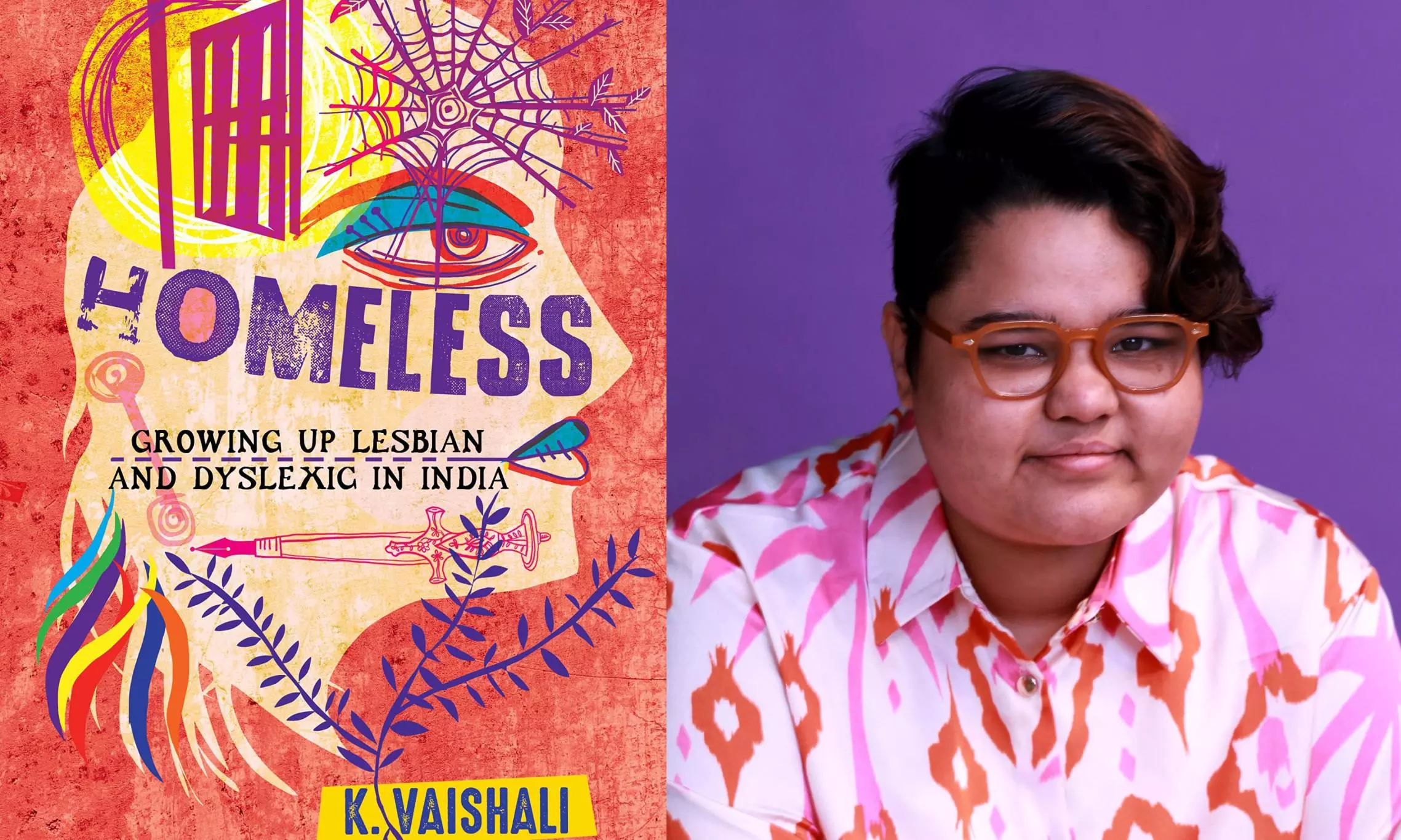"Sahitya Akademi Puts a Stamp of Approval": Winner K Vaishali

Hyderabad: K. Vaishali won the Sahitya Akademi Yuva Puraskar 2024 award for her memoir, "Homeless: Growing Up Lesbian and Dyslexic in India". Taking from her lived experiences, her book talks about navigating the double challenge of being a homosexual and a neurodivergent person.
Q. Could you tell us a little about your journey of being a writer?
Writing has been a safe space, where I could express myself without worrying about people's perceptions of me or putting myself in danger. I also write for a living at a tech company. Going through a tough time while shifting universities, I took refuge in writing. UGC has no guidelines on what accommodations are needed for dyslexic people. Due to this, I couldn't finish multiple degrees. Finally, I started writing this book when I was at the University of Hyderabad, just to have an outlet for my feelings. Initially, I thought of writing a fiction book but as I moved into my own house and started feeling safe to express myself gradually, I turned it into a memoir.
Q. How does being a lesbian and dyslexic pose a double challenge in your writing?
It didn't happen gracefully. Getting diagnosed in your 20s adds layers of confusion because you're used to masking. You don't know if others are having the same experience. I spend more effort in doing these things and it's not too apparent to others.
Writing, therefore, was the biggest challenge. And that is precisely why I like writing. It is fascinating to overcome these challenges. Nowadays, I'm kinder to myself. I use a screen reader, a voice-to-text software. I'm waiting for AI to make things easier for me. We do have some tools already that are accessible.
Q. Your brother is dyslexic too. How is the condition similar or different for you and him?
Every neurodiverse person is different. Even if they have the same condition, they can have differences in the way it manifests. I can't read the analogue clock, it's difficult for me to know clockwise and anti-clockwise directions. My brother can read the clock but he cannot tell left from right. It's the challenge of direction, but it shows up in different ways. We both struggle to write, as we also have dysgraphia, where our fine motor skills are impaired. We can’t write for long, our handwriting takes a hit, and we do not have a strong grip.
Q. How was the reaction from your family when you came out? After winning the Sahitya Academy Award has anything changed with their acceptance of you?
My family wasn't too happy. India is very conservative in terms of sex, but my upper caste upbringing also put another layer of conventionality. It was hard for them to accept just that I have a sexuality. It took them a lot of time to support me, which was at my expense. When I needed their support, it was lacking. But everyone is happy for me for winning the award. I am aware that I am writing from the privilege of safety. Sahitya Akademi has put a stamp of approval on my experience that nobody can refute or question.
Q. How supportive has your workplace been in this regard?
It was difficult for me in the previous company. On paper, they supported everybody but there was nothing visually that the company was doing to support their LGBTQ employees. Luckily, in my current company, I am one of the advocates for workspace equality. I am given the platform, funding and executive visibility to do the advocacy required for my community to feel at home. I also don't have to disclose my disability to ask for a screen reader or any other software to do my job. There is openness to let me be myself. No discrimination on the payment front as well. I am paid as much as everybody else.

